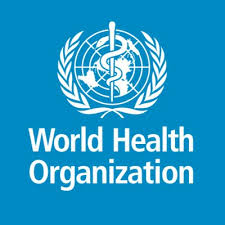
Withdrawing from international cooperation in the midst of global pandemic is an idea that’s just as bad as it sounds. President Trump’s decision to withdraw from the WOrld Health Organization (WHO) withdrawal will also be harmful in other ways. Notably, a major component of the WHO’s work involves the health impacts of pollution and dangerous chemicals.
Air pollution is an important focus of the WHO’s work. Appallingly poor air quality in the mega-cities of the developing world poses a major threat to public health. The WHO notes that “an estimated 4.2 million premature deaths globally are linked to ambient air pollution, mainly from heart disease, stroke, chronic obstructive pulmonary disease, lung cancer, and acute respiratory infections in children.” According to recent studies, air pollution may also increase coronavirus fatalities. Besides being a clearinghouse for information about the health impacts of air pollution, the WHO also works with countries to control those impacts. The WHO website notes it uses “a number of tools in order to evaluate the effectiveness and feasibility of abatement efforts. Examples include cost-benefit and cost-effectiveness analyses and health impact assessments.”
The WHO assists governments to consider a wide range of methods for controlling air pollution. Not all of those methods would meet the approval of the Trump Administration, such as reduced use of fossil fuels and increased reliance on renewables. Of course, even WHO’s advocacy of improved pollution control equipment for facilities burning fossil fuels might well meet with a frown from current EPA leadership.
Air pollution is by no means the only environmental issue in the WHO’s portfolio. It also provides information to countries about the health risks of toxic substances such as cadmium, benzene, dioxins, and mercury, as well as techniques to control those risks. The WHO has a special program dealing with pollution risks to children, who make up a large proportion of the population in countries with high birth rates. Safe drinking water is also a priority. The WHO’s assistance can take very concrete form. For instance, it provided a mobile lab to Mauritania to assist with testing water quality in remote areas.
Of course, much of the WHO’s work relates to diseases like COVID-19, malaria, and polio. Withdrawing U.S. support may undermine these vital programs. Reduced support may mean higher deaths from environmental risks in many parts of the world. It seems doubtful that any of this figured into the Trump Administration’s decision — certainly not environmental risks, which the Administration is indifferent to.
The post Another Casualty of US Withdrawal from the WHO: The Environment appeared first on Legal Planet.
By: Dan Farber
Title: Another Casualty of US Withdrawal from the WHO: The Environment
Sourced From: legal-planet.org/2020/06/04/another-casualty-of-us-withdrawal-from-the-who-the-environment/
Published Date: Thu, 04 Jun 2020 15:20:11 +0000
Vist Maida on Social Me
Website Links
Maida Law Firm - Auto Accident Attorneys of Houston, by fuseology
No comments:
Post a Comment